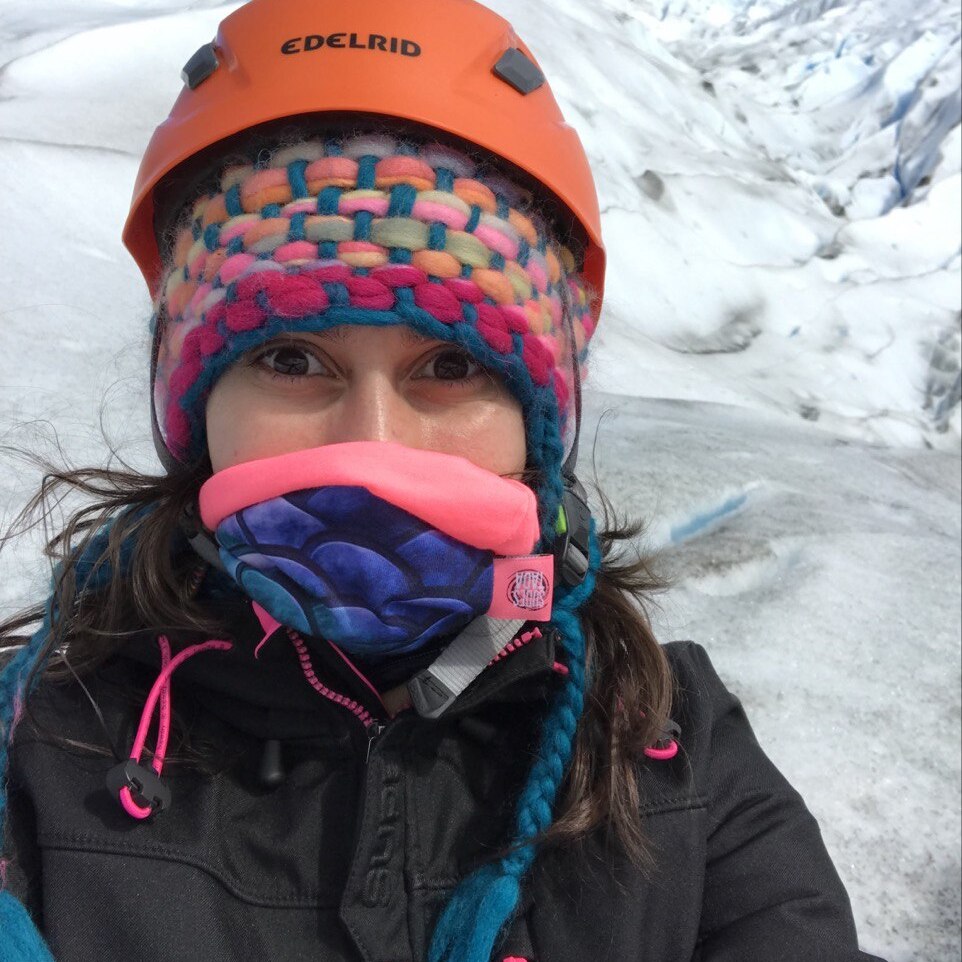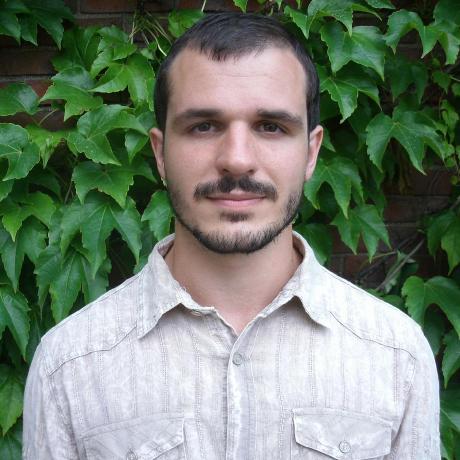About AdvML Frontiers 2022
Adversarial machine learning, which aims at tricking ML models by providing deceptive inputs, has been identified as a powerful method to improve various trustworthiness metrics (e.g., adversarial robustness, explainability, and fairness) and to advance versatile ML paradigms (e.g., supervised and self-supervised learning, and static and continual learning). As a consequence of the proliferation of AdvML-inspired research works, the proposed workshop – New Frontiers in AdvML – aims to identify the challenges and limitations of current AdvML methods, and explore new perspectives and constructive views of AdvML across the full theory/algorithm/application stack.
News
-
The best paper award is given to the accepted paper Model Transferability With Responsive Decision Subjects! Congratulations to Yang Liu, Yatong Chen, Zeyu Tang, and Kun Zhang!
Location
Room 343-344
ICML 2022 Workshop
In Baltimore, MD, USA.
Time
July 22, 2022
Friday
Keynote Speakers

Aleksander Madry
Massachusetts Institute of Technology, USA

Somesh Jha
University of Wisconsin, Madison, USA

Atul Prakash
University of Michigan, USA

Changliu Liu
Carnegie Mellon University, USA

Ajmal Mian
The University of Western Australia, Australia

Battista Biggio
University of Cagliari, Italy

Celia Cintas
IBM Research Africa, Kenya

Joel Dapello
Harvard University, USA
Schedule
Opening Remarks

Keynote (Virtual)
Ajmal Mian
Adversarial attacks on deep learning : Model explanation & transfer to the physical world
Abstract & Bio

Keynote (Virtual)
Celia Cintas
A tale of adversarial attacks & out-of-distribution detection stories in the activation space
Abstract & Bio
Oral 1 Model Transferability With Responsive Decision Subjects
Yang Liu; Yatong Chen; Zeyu Tang; Kun Zhang
Oral 2 What is a Good Metric to Study Generalization of Minimax Learners?
Asuman Ozdaglar; Sarath Pattathil; Jiawei Zhang; Kaiqing Zhang
Oral 3 Toward Efficient Robust Training against Union of Lp Threat Models
Gaurang Sriramanan; Maharshi Gor; Soheil Feizi
Oral 4 On the Interplay of Adversarial Robustness and Architecture Components: Patches, Convolution and Attention
Francesco Croce; Matthias Hein

Keynote (Virtual)
Battista Biggio
Machine Learning Security: Lessons Learned and Future Challenges
Abstract & Bio

Keynote (In Person)
Joel Dapello
What Can the Primate Brain Teach Us about Robust Object Recognition?
Abstract & Bio
Poster Session
(for all accepted papers)
Lunch + Poster

Keynote (Virtual)
Changliu Liu
New adversarial ML applications on safety-critical human-robot systems
Abstract & Bio
Blue Sky Idea 1 Overcoming Adversarial Attacks for Human-in-the-Loop Applications
Ryan McCoppin; Sean Kennedy; Platon Lukyanenko; Marla Kennedy
Blue Sky Idea 2 Ad Hoc Teamwork in the Presence of Adversaries
Ted Fujimoto; Samrat Chatterjee; Auroop R Ganguly
Blue Sky Idea 3 Learner Knowledge Levels in Adversarial Machine Learning
Sihui Dai; Prateek Mittal
Blue Sky Idea 4 Putting Adversarial Machine Learning to the Test: Towards AI Threat Modelling
Henrik Junklewitz; Ronan Hamon
Blue Sky Idea 5 Easy Batch Normalization
Arip Asadulaev; Alexander Panfilov; Andrey Filchenkov
Blue Sky Idea 6 Adversarial Training Improve Joint Energy-Based Generative Modelling
Rostislav Korst; Arip Asadulaev
Blue Sky Idea 7 Multi-step domain adaptation by adversarial attack to HΔH-divergence
Arip Asadulaev; Alexander Panfilov; Andrey Filchenkov

Keynote (Virtual)
Atul Prakash
Robust physical perturbation attacks and defenses for deep learning visual classifiers
Abstract & Bio
Poster Session
(for all accepted papers)
Closing Remarks
Call For Papers
Submission Instructions
We welcome paper submissions in two separate tracks. The full paper submission track accepts papers up to 6 pages with unlimited references or supplementary materials. The Blue Sky Ideas submission track solicits papers up to 2 pages. The paper format will follow the ICML 2022 template. Since the accepted papers are considered as non-archival, concurrent submission is allowed but it is the responsibility of the authors to verify the compliance with the other venue's policy. Based on the PC’s recommendation, the accepted papers will be allocated either a spotlight talk or a poster presentation, and made publicly available at the workshop website.
About Blue Sky Ideas Track : This special track targets the future of the research area of adversarial ML. We encourage short submissions focusing on visionary ideas, long-term challenges, and new research opportunities. It serves as an incubator for innovative and provocative ideas and dedicates to providing a forum for presenting and exchanging far-sighted ideas without being constrained by the result-oriented standards. We especially encourage ideas on the novel, overlooked, and under-represented areas related to adversarial ML. Selected acceptances in this track will be invited to the Blue Sky Presentation sessions.
The accepted papers will be publicly available in our workshop website and Best paper Award will be selected.
Important Dates
Submission deadline:Notification to authors: June 13., 2022, AOE
Camera ready deadline: July 8., 2022, 23:59 AOE
Please submit at the AdvML Frontiers 2022 @ ICML 2022 CMT website.
Contacts
Please contact Yihua Zhang (zhan1908@msu.edu) and Yuguang Yao (yaoyugua@msu.edu) for website and paper submission questions. Please contact Dongxiao Zhu (dzhu@wayne.edu), Kathrin Grosse (kathrin.grosse@unica.it), Pin-Yu Chen (pin-yu.chen@ibm.com), and Sijia Liu (liusiji5@msu.edu) for general workshop questions.
Topics
The topics for AdvML Frontiers 2022 include, but are not limited to:
- Mathematical foundations of AdvML (e.g., geometries of learning, causality, information theory)
- Adversarial ML metrics and their interconnections
- Neurobiology-inspired adversarial ML foundations, and others beyond machine-centric design
- New optimization methods for adversarial ML
- Theoretical understanding of adversarial ML
- Data foundations of adversarial ML (e.g., new datasets and new data-driven algorithms)
- Scalable adversarial ML algorithms and implementations
- Adversarial ML in the real world (e.g., physical attacks and lifelong defenses)
- Provably robust machine learning methods and systems
- Robustness certification and property verification techniques
- Generative models and their applications in adversarial ML (e.g., Deepfakes)
- Representation learning, knowledge discovery and model generalizability
- Distributed adversarial ML
- New adversarial ML applications
- Explainable, transparent, or interpretable ML systems via adversarial learning techniques
- Fairness and bias reduction algorithms in ML
- Transfer learning, multi-agent adaptation, self-paced learning
- Risk assessment and risk-aware decision making
- Adversarial ML for good (e.g., privacy protection, education, healthcare, and scientific discovery)
Accepted Papers
Best Paper Award
53 Model Transferability With Responsive Decision Subjects [Paper]
(Yang Liu; Yatong Chen; Zeyu Tang; Kun Zhang)
Oral Acceptance
56 What is a Good Metric to Study Generalization of Minimax Learners? [Paper]
(Asuman Ozdaglar; Sarath Pattathil; Jiawei Zhang; Kaiqing Zhang)
65 Toward Efficient Robust Training against Union of Lp Threat Models [Paper]
(Gaurang Sriramanan; Maharshi Gor; Soheil Feizi)
87 On the interplay of adversarial robustness and architecture components: patches, convolution and attention [Paper]
(Francesco Croce; Matthias Hein)
Blue Sky Acceptance
9 Overcoming Adversarial Attacks for Human-in-the-Loop Applications [Paper]
(McCoppin, Ryan R; Kennedy, Sean M; Lukyanenko, Platon; Kennedy, Marla)
10 Ad Hoc Teamwork in the Presence of Adversaries [Paper]
(Fujimoto, Ted; Chatterjee, Samrat; Ganguly, Auroop)
34 Easy Batch Normalization [Paper]
(Asadulaev, Arip; Panfilov, Alexander; Filchenkov, Andrey)
35 Learner Knowledge Levels in Adversarial Machine Learning [Paper]
(Dai, Sihui; Mittal, Prateek)
38 Adversarial Training Improve Joint Energy-Based Generative Modelling [Paper]
(Korst, Rostislav; Asadulaev, Arip)
42 Putting Adversarial Machine Learning to the Test: Towards AI Threat Modelling [Paper]
(Junklewitz, Henrik; Hamon, Ronan)
47 Multi-step domain adaptation by adversarial attack to HΔH-divergence [Paper]
(Asadulaev, Arip; Panfilov, Alexander; Filchenkov, Andrey)
Poster Acceptance
4 Rethinking Multidimensional Discriminator Output for Generative Adversarial Networks [Paper]
(Dai, Mengyu; Hang, Haibin; Srivastava, Anuj)
5 Generative Models with Information-Theoretic Protection Against Membership Inference Attacks [Paper]
(Hassanzadeh, Parisa; Tillman, Robert E)
7 Availability Attacks on Graph Neural Networks [Paper]
(Tailor, Shyam A; Tairum Cruz, Miguel; Azevedo, Tiago; Lane, Nicholas; Maji, Partha)
12 Robust Models are less Over-Confident [Paper]
(Grabinski, Julia; Gavrikov, Paul; Keuper, Janis; Keuper, Margret)
13 Exploring Adversarial Attacks and Defenses in Vision Transformers trained with DINO [Paper]
(Rando, Javier; Baumann, Thomas; Naimi, Nasib A; Mathys, Max)
14 Distributionally Robust counterfactual Explanations via an End-to-End Training Approach [Paper]
(Guo, Hangzhi; Jia, Feiran; Chen, Jinghui; Squicciarini, Anna Cinzia; Yadav, Amulya)
15 Meta-Learning Adversarial Bandits [Paper]
(Balcan, Maria-Florina; Harris, Keegan; Khodak, Mikhail; Wu, Steven)
17 BIGRoC: Boosting Image Generation via a Robust Classifier [Paper]
(Ganz, Roy; Elad, Michael)
18 Why adversarial training can hurt robust accuracy [Paper]
(Clarysse, Jacob; Hörrmann, Julia; Yang, Fanny)
20 Superclass Adversarial Attack [Paper]
(Kumano, Soichiro; Kera, Hiroshi; Yamasaki, Toshihiko)
21 Individually Fair Learning with One-Sided Feedback [Paper]
(Bechavod, Yahav; Roth, Aaron)
24 Multi-Task Federated Reinforcement Learning with Adversaries [Paper]
(Anwar, Aqeel; Wan, Zishen; Raychowdhury, Arijit)
30 Adversarial Cheap Talk [Paper]
(Lu, Christopher; Willi, Timon; Letcher, Alistair HP; Foerster, Jakob)
31 Thinking Two Moves Ahead: Anticipating Other Users Improves Backdoor Attacks in Federated Learning [Paper]
(Wen, Yuxin; Geiping, Jonas A.; Fowl, Liam; Souri, Hossein; Chellappa, Rama; Goldblum, Micah; Goldstein, Tom)
32 Synthetic Dataset Generation for Adversarial Machine Learning Research [Paper]
(Liu, Xiruo; Singh, Shibani; Cornelius, Cory; Busho, Colin; Tan, Mike; Paul, Anindya; Martin, Jason)
39 Making Corgis Important for Honeycomb Classification: Adversarial Attacks on Concept-based Explainability Tools [Paper]
(Brown, Davis; Kvinge, Henry)
43 Do Perceptually Aligned Gradients Imply Adversarial Robustness? [Paper]
(Ganz, Roy; Kawar, Bahjat; Elad, Michael)
44 Make Some Noise: Reliable and Efficient Single-Step Adversarial Training [Paper]
(de Jorge Aranda, Pau; Bibi, Adel; Volpi, Riccardo; Sanyal, Amartya; Torr, Philip; Rogez, Gregory; Dokania, Puneet)
46 Catastrophic overfitting is a bug but also a feature [Paper]
(Ortiz-Jimenez, Guillermo; de Jorge Aranda, Pau; Sanyal, Amartya; Bibi, Adel; Dokania, Puneet; Frossard, Pascal; Rogez, Gregory; Torr, Philip)
49 Fair Universal Representations using Adversarial Models [Paper]
(Kairouz, Peter; Liao, Jiachun; Huang, Chong; Welfert, Monica; Sankar, Lalitha)
50 Sleeper Agent: Scalable Hidden Trigger Backdoors for Neural Networks Trained from Scratch [Paper]
(Souri, Hossein; Fowl, Liam; Chellappa, Rama; Goldblum, Micah; Goldstein, Tom)
51 Early Layers Are More Important For Adversarial Robustness [Paper]
(Bakiskan, Can; Cekic, Metehan; Madhow, Upamanyu)
54 Provably Adversarially Robust Detection of Out-of-Distribution Data (Almost) for Free [Paper]
(Meinke, Alexander; Bitterwolf, Julian; Hein, Matthias)
55 Attacking Adversarial Defences by Smoothing the Loss Landscape [Paper]
(Eustratiadis, Panagiotis; Gouk, Henry; Li, Da; Hospedales, Timothy)
57 Sound Randomized Smoothing in Floating-Point Arithmetics [Paper]
(Voráček, Václav; Hein, Matthias)
58 Robustness in deep learning: The width (good), the depth (bad), and the initialization (ugly) [Paper]
(Zhu, Zhenyu; Liu, Fanghui; Chrysos, Grigorios; Cevher, Volkan)
59 Riemannian data-dependent randomized smoothing for neural network certification [Paper]
(Labarbarie, Pol; Hajri, Hatem; Arnaudon, Marc)
61 Adversarial robustness of ßVAE through the lens of local geometry [Paper]
(Khan, Asif; Storkey, Amos)
64 "Why do so?"" --- A practical perspective on adversarial machine learning [Paper]
(Grosse, Kathrin; Bieringer, Lukas; Besold, Tarek R.; Biggio, Battista; Krombholz, Katharina)
66 Adversarial Estimation of Riesz Representers [Paper]
(Chernozhukov, Victor; Newey, Whitney; Singh, Rahul; Syrgkanis, Vasilis)
67 Saliency Guided Adversarial Training for Tackling Generalization Gap with Applications to Medical Imaging Classification System [Paper]
(Li, Xin; Qiang, Yao; Li, Chengyin; Liu, Sijia; Zhu, Dongxiao)
68 Self-Destructing Models: Increasing the Costs of Harmful Dual Uses in Foundation Models [Paper]
(Mitchell, Eric; Henderson, Peter; Manning, Christopher D; Jurafsky, Dan; Finn, Chelsea)
69 Illusionary Attacks on Sequential Decision Makers and Countermeasures [Paper]
(Franzmeyer, Tim; Henriques, Joao F; Foerster, Jakob; Torr, Philip; Bibi, Adel; Schroeder de Witt, Christian)
70 Can we achieve robustness from data alone? [Paper]
(Kempe, Julia; Tsilivis, Nikolaos; Su, Jingtong)
75 Gradient-Based Adversarial and Out-of-Distribution Detection [Paper]
(Lee, Jinsol; Prabhushankar, Mohit; AlRegib, Ghassan)
76 Investigating Why Contrastive Learning Benefits Robustness against Label Noise [Paper]
(Xue, Yihao; Whitecross, Kyle; Mirzasoleiman, Baharan)
77 Layerwise Hebbian/anti-Hebbian (HaH) Learning In Deep Networks: A Neuro-inspired Approach To Robustness [Paper]
(Cekic, Metehan; Bakiskan, Can; Madhow, Upamanyu)
81 Efficient and Effective Augmentation Strategy for Adversarial Training [Paper]
(Addepalli, Sravanti; Jain, Samyak; RADHAKRISHNAN, Venkatesh Babu)
82 Robust Empirical Risk Minimization with Tolerance [Paper]
(Bhattacharjee, Robi; Hopkins, Max; Kumar, Akash; Yu, Hantao; Chaudhuri, Kamalika)
84 Towards Out-of-Distribution Adversarial Robustness [Paper]
(Ibrahim, Adam; Guille-Escuret, Charles; Mitliagkas, Ioannis; Rish, Irina; Krueger, David; bashivan, pouya)
85 Reducing Exploitability with Population Based Training [Paper]
(Czempin, Pavel; Gleave, Adam)
91 RUSH: Robust Contrastive Learning via Randomized Smoothing [Paper]
(Pang, Yijiang; Liu, Boyang; Zhou, Jiayu )
AdvML Frontiers 2022 Venue

ICML 2022 Workshop (Room 343-344)
Physical Conference
AdvML Frontiers 2022 will be held in a in-person manner with possible online components co-located at the ICML 2022 workshop and the conference will take place in the beautiful city of Baltimore, MD, USA.
Organizers

Sijia Liu
Michigan State University, USA

Pin-Yu Chen
IBM Research, USA

Dongxiao Zhu
Wayne State University, USA

Eric Wong
MIT, USA

Kathrin Grosse
University of Cagliari, Italy

Hima Lakkaraju
Harvard University, USA

Sanmi Koyejo
UIUC & Google, USA
Workshop Activity Student Chairs
Yihua Zhang
Yuguang Yao
Yimeng Zhang
Jinghan Jia